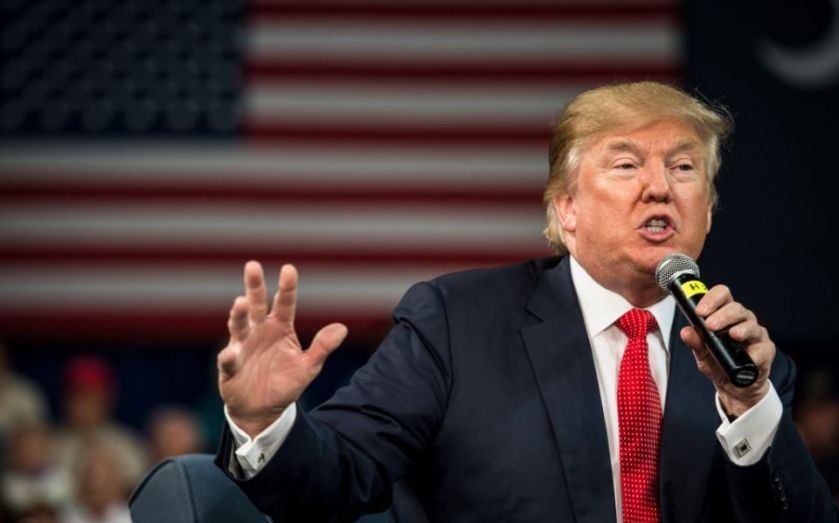Donald Trump will lose his presidential campaign – but what he represents isn’t going anywhere

Donald Trump, for all that he is pushing his supposed novelty as the great reason fearful Americans should vote for him, is actually part of a very old American story, even if he is probably personally unaware of this. Before dispatching him to the obscurity he so richly deserves, it is important to place Trump within the broader American political experience, if we are to understand what is going on in my fretful country.
Perhaps unsurprisingly given his abrupt, recent conversion to the Republican Party, Trump’s immediate political forebears were southern populists in the Democratic Party in the 1960s and 1970s. More than anyone else, he resembles – both in terms of his anti-establishment style and cynical if surprisingly effective opportunism over the country’s social divisions – George Wallace, rogue Democrat, who was the unofficial king of the white south during the days of civil rights tensions.
Trump’s political base is strikingly similar to Wallace’s: anxious, not particularly well-educated, lower middle class whites, worried that the changing world is passing them by. Above all else, today’s populists (in common with the earlier Wallace supporters) are yearning for a myth. They hanker after the beguiling simplicity of an America that never really existed, when a competitive world failed to intrude upon their rather cosseted lives.
It says it all that Trump’s strikingly effective campaign slogan, “Make America Great Again”, is in reality a code playing to his base’s basic fears and worldview. America used to be great in that it provided a prosperous life for “real Americans” (meaning lower middle class white workers without a college degree), who regardless of their skill set could count on a guaranteed, prosperous existence.
As the far more competitive era of globalisation has dawned – with its greater emphasis on education as being the key to economic success – Trump’s supporters are indeed right; they have been left behind.
Something – largely beneficial for the world in general and broadly for America in particular – has changed, but irredeemably not in their favour. There are more “winners” in the new age, but also more “losers”. The specific reason Trump harps on the notion of “winning” to anyone who will listen is that this feeling of success is precisely what his supporters have lost – above all economically for themselves – and what they yearn to have back.
There is also a foreign policy aspect to Trump’s thinking. By definition, the new multipolar world order means that, as powerful as it remains, America is in relative decline, as the rest of the world – from Trump bogeymen China and Mexico to other emerging markets – are growing in overall importance. If the specific worsening economic condition of Trump’s supporters is their primary complaint, they also see it reflected in terms of America’s diminution of power on the global stage.
Trump’s supporters yearn for the unipolar world, that brief halcyon time following the end of the Cold War when the US stood literally alone, largely being able to do whatever it wanted. And it is this loss of unfettered power that explains Trump’s otherwise quite mad assertions that the US will make Mexico pay for a wall to keep out immigrants that America builds, just as the US will blithely tax Chinese goods to the point that manufacturing jobs (the lower middle class’s former preserve) magically return to America. Trump ignores multipolarity because his base detests our new era, just as he celebrates the magical time when America could do as it pleased. It is just another way of turning back the clock, which is what this whole wild ride has been about.
But Trump’s political days are numbered. Primarily, he will lose due to simple maths. As was true for Wallace’s four runs for the presidency, Trump has what political pros would call a high floor but a low ceiling. Those who love him will always do so, but he is just not the sort of guy to ever win over anyone other than his fanatically loyal base. As the Republican primaries progress and the field narrows, 25 per cent (Trump’s base) is simply far too low a number to prevail. As the statistician Nate Silver put it, Trump represents 25 per cent of the 25 per cent of Americans who identify as Republicans, or 6 to 8 per cent of the electorate, roughly the percentage who think the Apollo moon landings were faked.
So Trump needs to be understood, as he represents the organic American populist school of thought, one not often heard of outside the confines of the US. But, odious as he is, Trump is not to be politically feared.